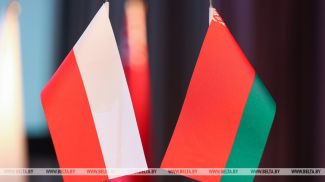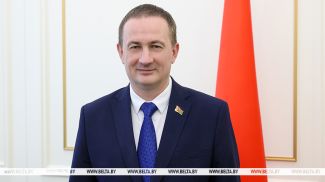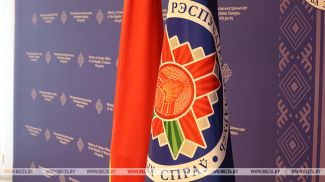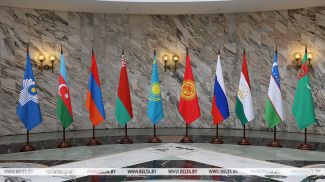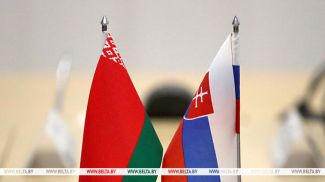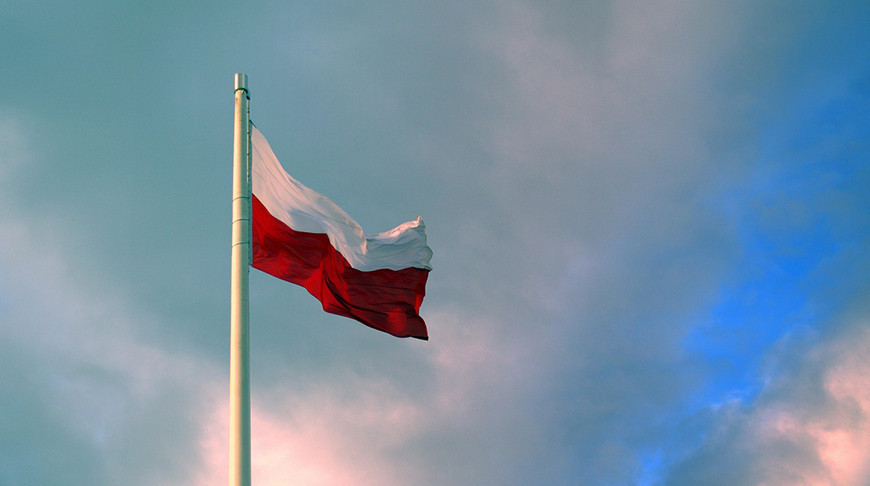
The Polish publication Rzeczpospolita recently published an intriguing article titled “Behind the scenes of the border opening with Belarus. We explain what Poland expects from Aleksandr Lukashenko”. This is particularly noteworthy against the backdrop of five years of Warsaw's uncompromising “fence” diplomacy. During this time, we have largely ceased to expect anything reasonable from our dear neighbor.
This article is also interesting because the Polish leadership, following the September incident with the border blockade, found itself in a rather delicate situation. After all, not only Polish businesses were affected, but also Poland's reputation as a transit country. And now, Donald Tusk's government is trying to find a way out of this situation while saving face.
Well, it's a sink-or-swim world. However, it seems that the Polish government once again hopes to save itself at the expense of Belarus.
Polish blockade: Back and forth
First, let's recall what happened in September and its ramifications for Poland, and by extension, for our entire region.
On 12 September, the Polish authorities unilaterally closed the border with Belarus, citing security concerns to justify this step. The formal reason for Warsaw was the Belarusian-Russian military exercise Zapad 2025, which took place in Belarus from 12 to 16 September. It is worth noting that, as a de-escalation measure, Minsk had decided earlier in the summer to move the maneuvers further inland, away from the western border. At the same time, Poland conducted the large-scale military exercise Iron Defender on its own territory in September, deploying five times more troops than the troops that participated in the Belarusian-Russian drill.
On 15 September, Chinese Foreign Minister Wang Yi visited Poland. He met with Polish Foreign Minister Radosław Sikorski and later with President Karol Nawrocki. Following the meeting with Sikorski, there was neither a joint statement nor a joint press conference. The parties made separate statements. “This indicates a lack of substantial convergence of positions on key issues, which, according to the government, include the actions of Russia and Belarus toward Poland and the closure of the Belarusian-Polish border," the Polish publication Myśl Polska wrote at the time.
On 16 September, Zapad 2025 concluded, yet Poland continued to block the border.
On 23 September, the Chinese newspaper Global Times published an op-ed titled "The China-Europe Arctic Express is Far More Than Just a New Shipping Route". The piece was promptly reprinted by several Polish media outlets.
The article discussed the official launch of the world's first Arctic container express route from China to Europe via the Northern Sea Route. It highlighted the particular importance of this new logistics pathway, especially considering disruptions to traditional routes. “Just days ago, Poland closed its border crossings with Belarus, leaving over 130 China-Europe freight trains stranded on the Belarusian side at the Brest crossing. Against this backdrop, the opening of the China-Europe Arctic Express provides more diversified route options for China-Europe trade, strengthening the resilience of global supply chains,” the publication wrote.
Two days later, on the night of 25 September, Polish authorities reopened the border crossings with Belarus, which had been closed since 12 September. However, Polish Prime Minister Donald Tusk continued his defiant rhetoric, stating that his government could close the border again in the future.
Polish experts clearly do not share Tusk’s sentiments. Poles are still calculating the losses from the border closure.
According to the Polish publication Business Times, a prolonged blockade of the Polish-Belarusian border risks permanently severing key trade routes. This could cause Poland and other Central and Eastern European countries to lose their status as the primary transit hub for EU-China trade. Such a scenario would carry significant geopolitical consequences, potentially weakening the European Union’s negotiating position and international authority. The border closure has transcended a localized transport issue, evolving into a systemic shock to global logistics. This disruption affects international supply chains, the competitiveness of European businesses, and the strategic interests of the entire EU economy. The publication concludes that averting a permanent decline in Europe’s role as an economic bridge between East and West will require enormous determination and creativity from both businesses and politicians.
Reports that Poland could lose Chinese transit routes due to border disputes have sparked significant controversy within the country, prompting even pro-government media to publish refutations. The Polish television channel TVN24 captured the public sentiment with its headline: “Poland Excluded from the Silk Road? Who Draws These Lines on the Map?” in an attempt to debunk the online rumors.
Naturally, the claim of Poland’s exclusion from the Belt and Road Initiative is false. Transit through Poland resumed after the border closure was lifted, and realigning major trade routes, even with concrete plans, is not a swift process. Nevertheless, there is cause for concern, particularly for carriers and exporters whose businesses have become hostages to Warsaw’s political maneuvers. In this context, the search for alternative routes is a logical response. However, such a shift will inevitably incur substantial additional costs for European companies and the EU economy as a whole, an outcome that bodes ill for Warsaw, both economically and politically.
It has been said a thousand times...Two weeks after reopening the border, Poland came forward with unexpected proposals. The publication Rzeczpospolita, citing informed sources in Warsaw, reported that the Polish leadership might open additional checkpoints on the border with Belarus. However, this did not come without “conditions”.
Rzeczpospolita lays its cards on the table right at the beginning of the article: “The Russian-Belarusian military exercise Zapad was a significant, but not the only, reason for the complete closure of the border with Belarus on 12 September. It was no coincidence that this decision was made on the eve of the planned visit to Warsaw by Chinese Foreign Minister Wang Yi, who was presented with a fait accompli: the railway transit of Chinese goods to the European Union (which accounts for only a few percent of all Chinese exports to the EU but is estimated at $30 billion per year) was suspended."
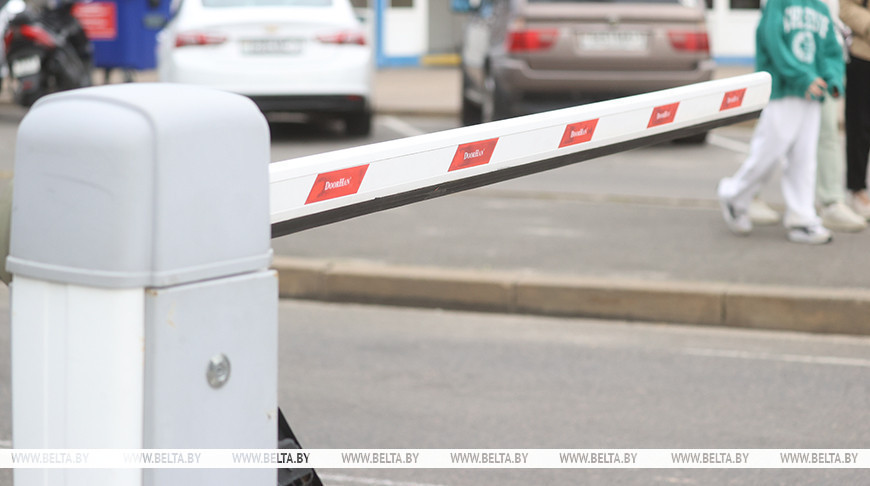
Then begins the favorite topic of Polish politics in the spirit of "who pressured whom." However, it should be noted that this time, the saga of how Warsaw pressured Beijing, and Beijing pressured Minsk, was written more between the lines. Perhaps there weren’t enough arguments for more. But even the conclusions drawn by the publication and its informed sources fall into some kind of absurd contradiction.
“Belarus promised China that it would arrange for the opening of checkpoints. We don't know how long that will take,” a well-informed source in Warsaw told Rzeczpospolita. Precisely how Minsk could open checkpoints that had been closed from the Polish side was, unfortunately, not specified.
Instead, what follows is statistics. “In the period from 25 September (the day the border opened) to 5 October alone, Border Guard officers detected about 950 attempts to illegally cross the border from Belarus into Poland”, the article states. This suggests that the whole story about pressure is a figment of the Polish establishment's imagination. This is, by and large, confirmed by the publication itself: “Lukashenko is clearly in no hurry to stop the migratory pressure on the border”.
When the sheer number of such inconsistencies becomes dizzying, the notorious “Russian threat” comes to the rescue. “Russia's involvement is obvious, as these people [the migrants] often have Russian visas and use them to legally enter Belarus before heading to the Polish border,” the article says.
But at this point, the narrative about “bad Belarus” rounding up migrants from all over the world to dump them on the Poles begins to fall apart. After all, if the migrants “often” have Russian visas and enter Belarus legally, then what possible issue can there be with Minsk? But Rzeczpospolita has an ironclad argument: “If he wanted to, Lukashenko could put a stop to this at any moment”.
The question of why the president of Belarus would want to protect the Polish border hangs in the air. The publication, however, goes on to write that Poland has a proposal for Belarus. “Poland has a proposal for Belarus: A test of Aleksandr Lukashenko's independence”, writes Rzeczpospolita. So, in essence: we provide them with border security, and in return, they give us a test on independence? It seems we've stumbled into an Ivan Krylov fable.
Behind the scenes in Warsaw
Overall, the Rzeczpospolita article is a jumble of various narratives, guesses, and contradictory conclusions. However, underneath the chaos, some important messages can be found.
It should be noted that Rzeczpospolita is one of the most influential publications in Poland. Such articles, citing government sources, are more than just stories about two neighbors arguing. What was actually shared with the public was information suggesting that Warsaw’s approach to the border situation may change. It is unlikely that Minsk was the intended addressee of this message, as if there is a genuine desire to resolve contentious issues, other communication channels should be chosen. The message was not aimed at China or the EU, who are concerned about the stability of the railway route and the customs clearance terminal in Malaszewicze. The only real audience left is Polish society, which includes ordinary citizens and political circles. Their reaction was not long in coming, and we will discuss it later.
“The Polish government may decide to open additional border checkpoints with Belarus that were closed under the Law and Justice party (PiS). However, Minsk must meet a number of conditions,” the newspaper writes. The very framing of the issue is amusing. Essentially, the Polish authorities, in an attempt to untangle the mess they themselves created, are now seeking cooperation from Belarus, while at the same trying to impose conditions on Minsk.
The very framing of the issue is amusing. Essentially, the Polish authorities, in an attempt to untangle the mess they themselves created, are now seeking cooperation from Belarus, while at the same trying to impose conditions on Minsk.
In fact, Warsaw currently faces two main challenges: on the one hand, to help its transit sector and small cross-border businesses get out of the mire, and on the other, to report to its European and Chinese partners on efforts to correct past mistakes. The full reopening of the border, as it was in November 2021, could not only breathe new life into Poland’s border regions, but also demonstrate Warsaw’s intention to restore its reputation as a transit country.
Undoubtedly, the smooth functioning of border checkpoints is in Belarus’ interest as well. Moreover, Warsaw’s irresponsible actions, which undermine the stability of the transit process, have an impact on our country. This is why Minsk has repeatedly proposed to the Polish leadership to resume dialogue, since there is no other way to resolve contentious issues. Warsaw’s response, however, has always been a kind of “fence diplomacy,” where instead of dialogue, the Polish elites have presented Minsk with ultimatums.
One can note that there is also an ultimatum in the latest Rzeczpospolita article, but it is aimed at a domestic audience. After all, If the two-week border closure in September seemed like a failure for the Tusk government, then reversing everything the Polish elites had done over the past five years would be seen as a complete failure of Poland’s policy toward Belarus.
In these circumstances, Warsaw needs at least a symbolic victory. Hence the conditions. “What do we expect from Minsk? We heard from several high-ranking interlocutors in Warsaw about three key issues,” Rzeczpospolita writes.
The Polish authorities want Belarus to put an end to the migration crisis on the border, release previously convicted Andrei Pochobut, a citizen of both Belarus and Poland, and cooperate in identifying those responsible for the murder of the Polish soldier Mateusz Sitek.
It should be noted that there is no word about military exercises and security threats, which until recently were considered a top priority. On these issues, the Polish leadership obviously has no say and, therefore, is not authorized to discuss them with Minsk. Another matter is putting an end to the migrant crisis on the border, which Warsaw exaggerated to the scale of a national disaster. Compared to the global migrant scale, the flow across the Belarusian-Polish border is a drop in the ocean. However, given the media hype around the topic, announcing a “victory” over migration would be a political triumph for the Tusk government.
As for the death of a Polish serviceman on the border, which Poland blames on a migrant, the State Border Committee of Belarus has already stated that it is eager to conduct both a unilateral and a bilateral investigation into the incident. However, for this, the Polish side had to provide details on the circumstances of the tragedy. Therefore, once again, the ball is in Warsaw’s court.
Belarusian President Aleksandr Lukashenko has repeatedly spoken about the situation with Andrei Pochobut. According to the head of state, the Poles themselves refused to talk about the extradition of Pochobut. “They gave up on Pochobut. The Poles refused to even talk about Pochobut. As far as I know, Pochobut does not want to go there. That is the whole issue,” Aleksandr Lukashenko said.
It is obvious that all three of Warsaw’s “conditions” are purely political in nature. Using them as an argument for its anti-Belarusian policy, the Polish leadership has been gaining benefits. But this toxic instrument cannot be exploited forever. Besides, society has grown weary of the confrontational policy as the border blockade situation clearly illustrated.
“Are you ashamed?”
The article from Rzeczpospolita was picked up by numerous Polish media. Comments from Poles on social media were not long in coming. The sentiments of Polish residents are clear.
“Why is everyone doing business with Belarus except the Poles? Because Kiev wants it so, and because of that we have to ruin our economy,” Stanislaw Kowalczyk wrote on Rzeczpospolita’s Facebook page.
“The Chinese have come to the same conclusion as Ukraine and Russia before them: Poland is not a reliable partner as it is not self-sufficient. Therefore, they decided to bypass Poland. I do not know whether the opening of the borders will help,” Michal Janik noted.
“We were expected to abandon the New Silk Road, and we did. Are you ashamed?” Michal Sitkowski asked a rhetorical question.
And here are some comments from the Do Rzeczy Facebook page of the publication, which reprinted the article.
"Belarus has repeatedly expressed its willingness for dialogue, but the current and previous Polish governments have behaved like spoiled brats," Łukasz Wolczyk said.
“Well, let’s hope they finally reach an agreement, as it is in our interest," Grażyna Stefanska said when commenting on the possibility of unblocking the border.
"Poland has no say in this matter," reader Darek Talik believes.
Meanwhile, the Polish Association of International Road Carriers (ZMPD) continues fighting for the free movement of vehicles across the border. Last week, the association's president, Jan Buczek, urged the government to immediately resolve the crisis at the Polish-Belarusian border, where more than 3,000 trucks were awaiting clearance at the time.
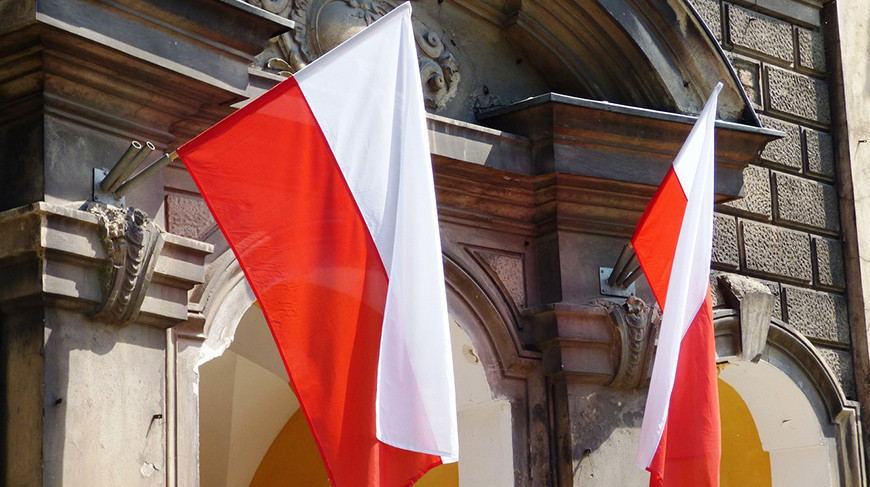
"After thirteen days of this border crossing's closure, Polish carriers found themselves in an extremely difficult financial and humanitarian situation. The decision to close the border was announced just two days before it took effect, without any prior analysis of the economic consequences or consultations with the international transport industry. As a result, hundreds of Polish trucks were stranded on the Belarusian side, unable to return to the country," the statement said.
Following the
opening of the Polish border checkpoint Kukuryki (Kozlovichi on the other side),
a massive traffic jam has formed. "Drivers are facing extremely difficult
conditions, having no access to sanitation facilities, water, or hot meals. For several days now, many have been sleeping in their truck cabs with limited supplies of food and fuel in the freezing conditions,” the statement reads.
According to Jan Buczek, the situation is a result of slow work by Polish control services. “We are appealing to the Minister of Finance to immediately send additional customs and border guard personnel to Kukuryki. Currently, this is the only border crossing servicing road freight transport between Poland and Belarus. Urgent staffing and organizational reinforcement is necessary not only to clear the roads but, first and foremost, to ensure the safety of the drivers and their basic living conditions,” Jan Buczek stated.
The head of ZMPD also called on the Polish government to make decisions that would allow for the redirection of part of the freight flow to other border crossings.
“The current situation jeopardizes not only the continuity of international transport but also people's safety and the position of Polish businesses in eastern markets. Due to the standstills and inability to fulfill contracts, Polish carriers risk losing orders to companies from other countries. ZMPD calls for the urgent convening of an inter-departmental crisis team involving representatives of the government, the National Revenue Administration, and industry organizations. The goal is to develop effective solutions for both carriers and drivers, and to restore the border's normal functioning,” the statement reads.
Vita Khanatayeva,
BelTA.




